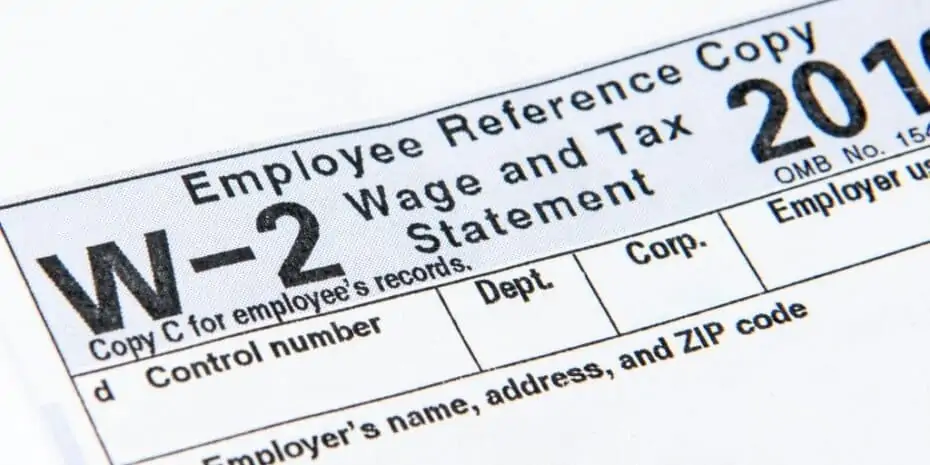The right business entity can work for you to achieve your goals, even though many new real estate investors delay setting it up. But it shouldn’t be this way, and it sure as heck doesn’t have to be hard. The business entity you’re structuring should allow your business to grow, not just limit your tax expenses, and it should work for you, not against you.
Clint Coons, an attorney and part of Anderson Business Advisors, knows just how important this is. He isn’t just an attorney—he’s also a real estate investor with over 22 years in investing, with over 200 properties closed across multiple states. Plus, his firm works with real estate investors like you and me.
What he’s going to show you here today is not only due to his knowledge as an attorney but the hard-earned lessons he’s gotten over the course of his own business.
Clint’s Three-Legged Stool
Let’s start with the analogy of a three-legged stool. What happens when you remove one leg from a three-legged stool? It will fall down! Unlike a chair with four legs.
This is the same with business. Envision your business sitting on this stool, with each leg working together to support that business.
One of these legs is asset protection; the second, tax planning; and the third leg is business planning. Here’s how we approach the creation of a business entity by considering all three of these components in detail.

1. Asset Protection
This is one of the things most new investors don’t give much thought to, but it’s a critical first step. Why? Because the right asset protection will insulate you from lawsuits. Not to mention, insurance doesn’t cover all of the liabilities we may (or will) encounter while investing in real estate.
Asset protection involves creating a structure for a business that can isolate liabilities present in your business from affecting you or your other properties. The more properties you have, the more flexible you can be when creating structures or entities for those other properties. But the fewer properties or assets you have, the more you need to look at asset protection.
Look at it this way. For someone with 300 properties, losing one or two of those is less than 1% of the size of an investor’s portfolio. But for a newbie with only four properties, losing two is already half of their investments.
This means that for a newbie real estate investor, this is one of the first things you should look into.
Note that real estate investing and asset protection is not a one-size-fits-all proposition. You should design protection for your assets depending on the kind of business you have or the kind of assets that you hold.
2. Tax Planning

Now, some people might think that the less tax they pay, the better off they’ll be. While that is generally one of the ways you’d do tax planning for your business, zero tax isn’t always a good idea.
The concept of tax planning is to minimize paying taxes without looking like you have no income (and are thus exempted from taxes).
Why is this important? Again, we’re making the three-legged stool not only to protect your assets while scaling your business. If we’re only protecting our business, we can be content with paying taxes as close to zero as possible. However, to scale the business at the same time, we also need to make your business appealing to lenders, and paying zero taxes isn’t appealing. In my case, it just means I have no taxable income, and they will look at me as a high-risk borrower!
Plus, if you can show that you know how the game works, and they see that you can bring in money, it works toward the total amount of money you can borrow for your loan.
3. Business Planning
The first two “legs” are universal for any kind of business, but for this leg, it depends on the kind of business you’re in. Since we’re in the real estate business, the specifics of this leg will apply only to real estate.
As a real estate investor, this has a great deal to do with the mindset you’re approaching the entire thing. You should consider it as a business, not as an investment. Why? Because when you treat your properties as a business, lenders will look at you as someone in control instead of someone trying to grow their portfolio. The former is always going to look much better.
Want to work with Anderson Business Advisors? Click here to book a free consultation!
Setting Up a Business Entity
Choosing what structure to create for your business not only means allowing yourself to easily scale your business but also choosing how the IRS views your business. In other words, you’re choosing how it’s going to be taxed.
Start by setting it up in the right state and/or jurisdiction where you’re conducting business. Note that different states have different rules on which kind of entities can be set up. For example, Texas allows a Series LLC, while Vermont doesn’t. In addition, some states can allow the entity you’re looking for, but they may tax it differently (or not at all); for instance, Florida allows an LLC, but you can instead use a land trust for that state because filing the documents for entity creation results in a taxable event.
In other words, if you’re looking to create an entity, it’s a good idea to brush up on which entities different states allow. Look at the requirements to make one and the attendant taxation for those entities as well.
Is There a One-Size-Fits-All Entity?
There is no one-size-fits-all solution for any kind of investment; different business entities exist for different needs. The U.S. recognizes over a dozen types of business entities, but most owners choose one of the six most common.
- Sole Proprietorship
- General Partnership
- Limited Partnership
- Limited Liability Company (LLC)
- C-corporation
- S-corporation
The most useful, as far as this topic we’re talking about is concerned, are LLCs and C-corps.
You might be tempted to create entities in states called “entity mills,” which are friendly for investors who want to set up LLCs or other structures. However, when you’re conducting business—for example, you’re running a rental property in Florida, while you’re based in Nevada—an LLC in a different state may prevent you from evicting a problematic tenant, for instance, because you’re not registered to do business there.
The state where you make your LLC (or any other structure) also imbues the entity with its unique features. A Wyoming LLC, for example, is highly useful as it keeps your information private because you don’t have to list business or personal information on the LLC. Even when you list several businesses or entities under that Wyoming LLC, for example, the trail runs cold there as it would have no personal information to disclose.
Another thing to note is that you can use a series LLC, where there are a series of sub-LLCs under your main LLC (an example is a Delaware LLC). Each land can be enclosed in its own sub-LLC, so if anything happens to that particular land, it won’t affect the others in that series.
Wyoming also accommodates a series LLC, but you need to record information for each sub-LLC. Delaware’s don’t.
What Kind of Business Entity Works Best for Real Estate?
It depends on the kind of real estate investment. Because your investment influences what kind of entity or structure you need to do, it’s helpful to break up the kind of real estate business and discuss each in more detail.
1. For Holding Vacant Land

Vacant land has a lot of potential, but at the same time, it also has some hidden liabilities. Suppose someone waltzes onto the land you own but you haven’t fenced it in and you haven’t put up a “No Trespassing” sign yet. If that person injures themselves on your land, you’d be liable for it.
This is why it’s a good idea to set up some kind of business entity that protects you from liabilities. A good candidate is a limited liability company, or an LLC. As a bonus, you can set up an LLC for your land even outside the state where it’s at, as long as you’re not developing it.
So how can an LLC help protect you from a lawsuit? An LLC basically compartmentalizes you, as a person apart from your business. If that person who injured themselves tries to sue you for their injury, instead of you receiving that lawsuit, it will be your LLC—you won’t be liable for anything that your company has done, is doing, or will do.
2. For Developing Land
When you want to develop land, you’re essentially opening up a whole new can of worms. This is because by then, you’ll be considered “conducting business” in that state. Clint demonstrates that it is possible to preserve the tax benefits of holding land by treating it as long-term capital gains, as described below.
Land development requires another type of entity than you would make sense when you’re just holding land. One of the most useful in this kind of situation is a C-corporation; you can set it up in the state where you’re conducting business. Next, assuming you have an LLC that owns that land, you can let the LLC “sell” this land to your corporation, which will assume its development.
This way, the LLC is only taxed 20%, the rate for capital gains tax, when it successfully sells the land to a corporation. By contrast, when the LLC itself tries to develop land—where the IRS will look at it as a real estate dealer, thus taxing it for net income—it will be taxed up to 39%, which is almost double, among other taxes (like Medicare surtax and state income taxes).
One good thing when you use an LLC in this manner is that after you’ve sold the land to your C-corp for development, you can again hold another parcel of land in that LLC. Still, it’s a better idea to only hold one property per LLC for your protection. In case one property has a problem and the LLC that owns it gets sued, it doesn’t affect your other properties.
3. For Running Rental Properties
First things first: we’re assuming that you have a Wyoming LLC already and that you’re going to make LLCs under it in the state you want to run a rental property. Similar to land development, running a rental property is “conducting business”, so this rental property should be under the LLC that you’ve made in that state. Note that you can also make a land trust this way, depending on the tax benefits you’d gain.
Make these LLCs with only one member, which will make it a “disregarded entity.” This gives them the benefit of pass-through taxation, which means they won’t be taxed as separate entities but instead will appear on your individual tax return. Meanwhile, the Wyoming LLC, which is your “head” LLC, should be designated as a partnership (with only two members—maybe you or a spouse). It will also file a 1065 (or partnership income tax return).
There are two advantages to doing it this way:
First, you look better with lenders if you’re applying for a loan under your own name. Most loans are Fannie Mae or Freddie Mac conforming loans, which don’t count up to 25% of your rental income. A partnership, because of the 1065, bypasses this where you can increase the total amount of your income toward the total amount of money that can be borrowed.
Second, you reduce the risk of audits on the tax planning side. 99% of tax auditors are looking at 1040 (individual tax income returns) instead of a 1065, because most real estate investors are using a 1040.
4. For Fix-and-Flips
When you’re flipping houses and other types of properties, one of the big “catches” in this type of business is when the IRS sees you as a dealer instead of an investor, when you want the opposite. A real estate investor has a more favorable tax position than a dealer, among other things.
In this case, similar to the land development strategy, you need a separate entity to make the fix-and-flip for you (in other words, to be the “dealer” for you). This is where a C-corporation can be a good choice here—because C-corps face less scrutiny than S-corps. Sure, C-corps encounter the issue of “double taxation” (where it’s taxed at the corporate level AND the personal level), but some people think it’s worth it in exchange for having the IRS looking the other way… well, most of the time.

Next, you need to take out a W-2 (wage and tax statement). This gives you the appearance of earning wages/income/salary and NOT someone who’s doing business for themselves, which are, in turn, considered higher risk by lenders. Coupled with the general sentiment that flippers are high-risk to begin with, forming a C-corp to flip land or property is a much better solution.
For additional protection, you can form LLCs to be held under your C Corp, with each individual property owned by its respective LLC. When you flip a property inside that LLC to a buyer, you can shut that LLC down. This gives you protection because the buyer can’t sue your C Corp for the property that they bought from you. Note that these LLCs should be set up in the state where you’re flipping.
A Final Word
Obviously, this article is not meant to be the be-all, end-all of the business entity creation. This collection of advice is just a taste and a starting point, but the more important thing is to remember—you don’t have to avoid all taxes and regulations. Trying to avoid those is going to backfire sooner or later.
Want to work with Anderson Business Advisors? Click here to book a free consultation!
Instead, what you want is an entity that works for you and lets you scale your business. If you’re not out there trying to grow it and instead you’re looking to pay as least as possible, you might be shooting yourself in the foot from the outset.
REtipster does not provide legal advice. The information in this article can be impacted by many unique variables. Always consult with a qualified legal professional before taking action.
REtipster does not provide tax, investment, or financial advice. Always seek the help of a licensed financial professional before taking action.

